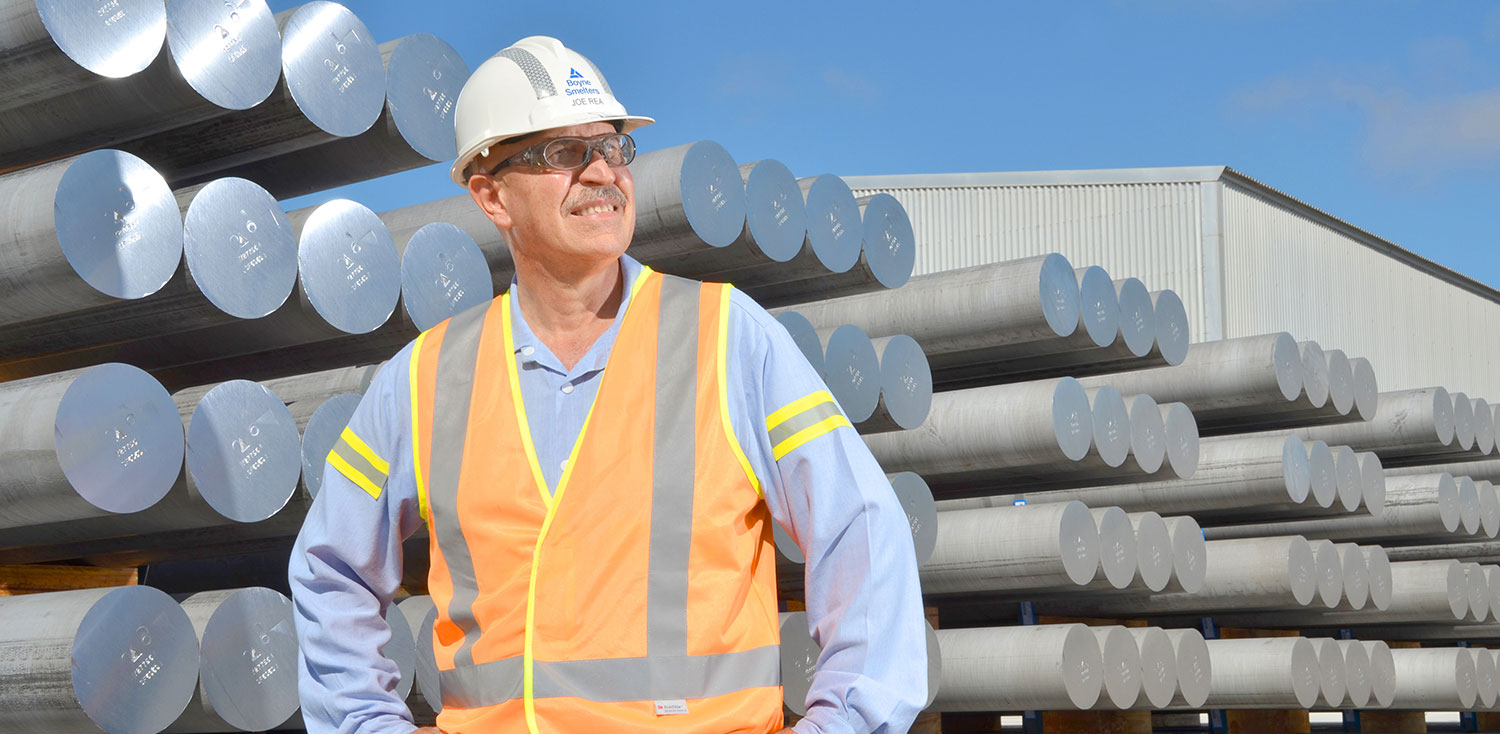Boyne Smelters Limited, where Joe Rea AFAIM is general manager, is definitely not old-school manufacturing. Forklifts zip efficiently around the expansive site. Slick conveyor belts transport components across a meticulously maintained plant. Rea, the face of Australia’s largest aluminium smelter, moves easily among the workers discussing one of his many passions – for sustainability, recycling, Australia, or his latest woodwork project. The Australian Institute of Management’s Excellence Awards ‘2015 Manager of the Year’ is obviously in charge, but his is not an outdated command-and-control leadership style. He takes his cues from a disparate group of role models.
“You get inspiration from those who do it well, and also inspiration from those who aren’t so successful,” says the former apprentice, who has worked his way to the top of the management tree embracing innovation and a strong ethical core.
Located about 20km south of Gladstone in Queensland, Boyne Smelters is defying those doomsayers who say Australian manufacturing cannot compete. Its 1200-odd employees and contractors produce more than 570,000 tonnes of aluminium each year, mostly exported to South-East Asia and North America for use in aerospace, transport, construction, electricity transmission and wind-power generation. It’s one of five aluminium assets in Australia and New Zealand that make up Pacific Aluminium, a wholly owned subsidiary of Rio Tinto.
“If you do just one task at a time, the injury-free days take care of themselves.”
Rea has put the focus on innovation, sustainability and ethics, the latter “setting the moral compass” for him and his staff.
A compelling safety record is one aspect that sets Boyne Smelters apart. Last year the plant, which operates around the clock, achieved a milestone of 365 consecutive days of safe operation.
Rea says this remarkable achievement, which is rarely seen in the heavy industry environment, is the result of a range of initiatives, including ‘Mates Looking Out for Mates’, which calls on workers to help eac h other by focusing on the next five minutes of a task and assessing any potential risk factors.
h other by focusing on the next five minutes of a task and assessing any potential risk factors.
Rea likens it to a batsman concentrating on the next ball: because it is the only one that can cause them trouble. “If you do just one task at a time, the injury-free days take care of themselves.”
Expansion into recycling
Boyne Smelters has undergone significant changes since opening in 1982. In 1997, a $1 billion expansion included a third production line. Between 2008 and 2012, a $750 million upgrade saw two of the plant’s three carbon bake furnaces decommissioned and the construction of a new, more energy efficient furnace to reduce CO2 emissions. Rea says the improvements give the smelter a real chance of continuing manufacturing “in line with our vision to be ‘proudly Australian, operating beyond 2030’.”
Perhaps Rea’s most commendable achievement is introducing an aluminium can recycling operation into the Boyne Island business after Australia’s remaining plant in Yennora, NSW, closed. He could not bear to see valuable cans being shipped offshore for foreign companies to gain at Australia’s expense. The plant recycles about 13 million cans a month, which adds about 2400 tonnes of aluminium to Boyne’s annual production.
It is one of the factors that contributed to Rea winning the prestigious AIM award. The man himself regards the recognition as “humbling” and just as much a tribute to his team and its commitment to the Australian manufacturing sector. “They feel part of something bigger than just going to work because this is helping to secure a manufacturing future for Australia.”


